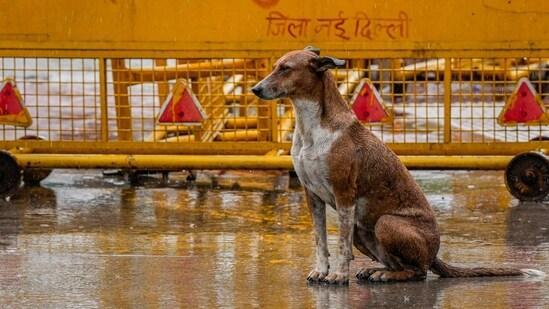
Rabies Virus Dies if it’s Washed with Soap, Says Maneka’s Sister
Animal activist Ambika Shukla, who is also the sister of former Union Minister Maneka Gandhi, has sparked a heated debate online after she described rabies as a “mild virus”. In a recent statement, Ambika opposed the Supreme Court’s order on stray dogs, claiming that the rabies virus is extremely delicate and can be killed by washing the wound with soap. She also added that dogs do not bite as much as it is commonly perceived to be.
Ambika’s comments have been met with intense backlash from animal welfare experts and the general public, who have expressed outrage and disbelief at her claims. Rabies, a viral disease that affects the nervous system of mammals, is a serious and potentially fatal condition that requires immediate medical attention.
According to the World Health Organization (WHO), rabies is a major public health concern worldwide, causing an estimated 59,000 human deaths annually. In India, the disease is a significant threat, with around 20,000 people contracting rabies each year. The WHO recommends that anyone bitten or scratched by an animal suspected of having rabies should receive immediate medical attention, including post-exposure prophylaxis (PEP), which consists of a series of injections of rabies immune globulin and a rabies vaccine.
Ambika’s assertion that soap can kill the rabies virus is also widely disputed by medical experts. In fact, the WHO and other reputable health organizations emphasize that soap and water can actually spread the virus, as the virus can survive on surfaces for several hours. The only effective way to prevent the transmission of rabies is through proper wound care, including thorough cleansing with soap and water, and immediate medical attention.
The controversy surrounding Ambika’s comments has raised serious concerns about the lack of understanding and awareness about rabies among the general public. Rabies is a preventable disease, and education and awareness campaigns are crucial in preventing its spread.
In addition to the medical risks associated with rabies, the disease also has significant economic and social impacts. In India, for example, the annual cost of treating rabies patients is estimated to be around Rs 1,000 crore. Moreover, the disease can also have a significant psychological impact on victims and their families, leading to fear, anxiety, and social isolation.
Ambika’s comments have also been criticized for being discriminatory towards stray dogs, which are often mistakenly blamed for spreading rabies. In reality, stray dogs are not the primary source of rabies transmission. According to the WHO, the majority of human rabies cases are caused by dogs that are owned by humans. In India, for example, around 80% of human rabies cases are attributed to dogs that are kept as pets.
The controversy surrounding Ambika’s comments has also highlighted the need for a more nuanced and evidence-based approach to addressing the issue of stray dogs in India. While it is true that stray dogs can pose a risk to public health and safety, it is also important to recognize that they are often a symptom of larger societal issues, such as poverty, urbanization, and lack of access to basic services.
In conclusion, Ambika’s comments have sparked a heated debate about rabies and stray dogs in India. While her assertion that soap can kill the rabies virus is widely disputed by medical experts, her comments have also highlighted the need for a more nuanced and evidence-based approach to addressing the issue of stray dogs in India. By promoting education and awareness about rabies, and addressing the root causes of stray dog populations, we can work towards a safer and healthier society for all.
Source:






